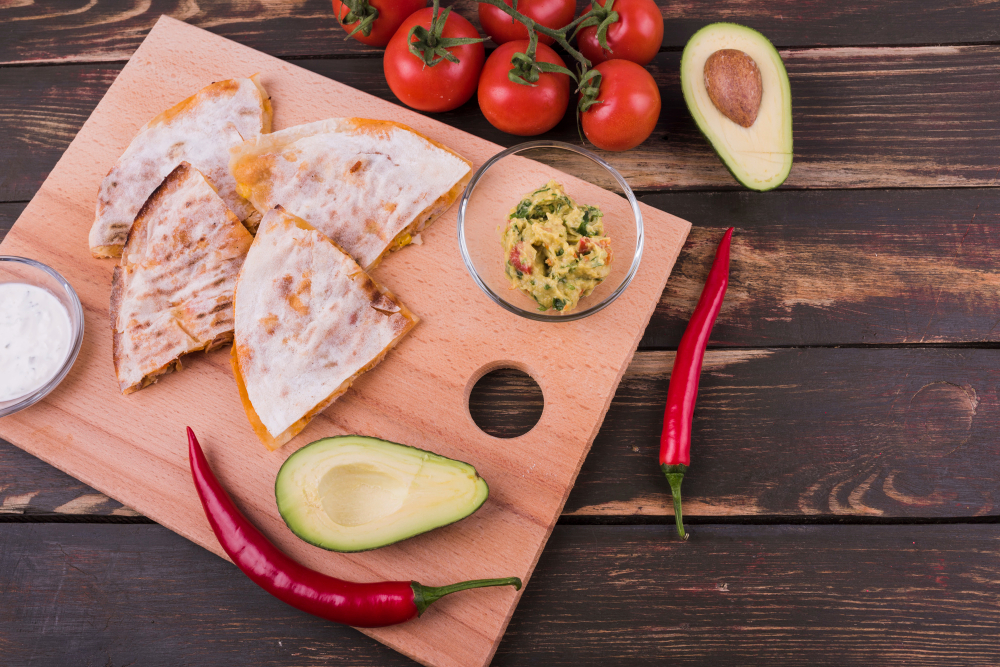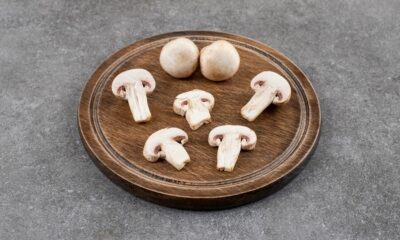Food And Drinks
Is Vegan Cheese Healthy? Exploring the Facts

In recent years, vegan cheese has surged in popularity as more people embrace plant-based diets. Whether for ethical, environmental, or health reasons, many individuals are transitioning away from traditional dairy products. However, the question remains: Is vegan cheese healthy? This article dives into the nutritional profile, benefits, and potential drawbacks of vegan cheese, providing an evidence-based answer to this question.
What Is Vegan Cheese?
Vegan cheese is a plant-based alternative to traditional cheese. It’s made without dairy and often uses ingredients such as nuts, seeds, soy, or root vegetables. Some of the common types of vegan cheese include:
- Nut-based cheeses – made from almonds, cashews, or macadamia nuts.
- Soy-based cheeses – derived from soy milk or tofu.
- Starch-based cheeses – using potato or tapioca starch.
- Coconut-based cheeses – made from coconut oil or milk.
Each type of vegan cheese has its unique taste, texture, and nutritional composition.
Nutritional Profile of Vegan Cheese
The healthiness of vegan cheese largely depends on its ingredients and manufacturing process. Below is a comparison of the average nutritional values of vegan cheese and dairy cheese per 1-ounce serving:
| Nutrient | Vegan Cheese | Dairy Cheese |
|---|---|---|
| Calories | 70-90 | 100-120 |
| Protein | 1-3g | 6-8g |
| Fat | 5-8g | 8-10g |
| Saturated Fat | 3-5g | 5-6g |
| Cholesterol | 0mg | 20-30mg |
| Sodium | 150-250mg | 150-250mg |
| Calcium | 5-15% of daily value (DV) | 15-20% of DV |
Health Benefits of Vegan Cheese
1. Lower in Cholesterol
Since vegan cheese is plant-based, it is naturally free of cholesterol. This makes it a heart-friendly option compared to dairy cheese, which can contribute to high cholesterol levels due to its saturated fat content.
2. Suitable for Lactose-Intolerant Individuals
For those who are lactose intolerant, vegan cheese offers a perfect alternative. It eliminates the digestive discomfort caused by lactose found in dairy products.
3. Rich in Healthy Fats
Many vegan cheeses, particularly nut-based varieties, contain healthy monounsaturated and polyunsaturated fats that support heart health and reduce inflammation.
4. Allergy-Friendly Options
Vegan cheese is often free from common allergens such as dairy, making it suitable for people with milk allergies or those following an allergen-free diet.
5. Ethical and Sustainable
Choosing vegan cheese aligns with ethical and environmental goals by reducing the carbon footprint and avoiding animal exploitation.
Potential Drawbacks of Vegan Cheese
1. Lower Protein Content
Compared to dairy cheese, most vegan cheeses are lower in protein. Protein is essential for muscle repair, immune function, and overall health. Individuals relying on vegan cheese should seek other protein sources to meet their daily needs.
2. Highly Processed Varieties
Some vegan cheeses are heavily processed and may contain additives such as emulsifiers, preservatives, and artificial flavors. These can detract from the overall healthiness of the product.
3. Sodium Levels
Like dairy cheese, many vegan cheese products are high in sodium, which can contribute to high blood pressure if consumed in excess.
4. Nutrient Gaps
Vegan cheese may lack some nutrients found in dairy cheese, such as vitamin B12 and calcium. However, some brands fortify their products with these nutrients.
Tips for Choosing Healthy Vegan Cheese
- Read the Ingredient List Look for products with simple, natural ingredients. Avoid those with a long list of artificial additives.
- Check for Fortification Choose vegan cheese fortified with essential nutrients such as calcium, vitamin D, and vitamin B12 to meet your dietary needs.
- Limit Processed Options Whenever possible, opt for minimally processed vegan cheese or make your own at home using whole ingredients like nuts and seeds.
- Balance Your Diet Don’t rely solely on vegan cheese for nutrients. Incorporate a variety of plant-based foods to ensure a balanced diet.
How Does Vegan Cheese Compare to Dairy Cheese?
Here’s an insightful breakdown of the key differences:
- Nutritional Value: Dairy cheese often provides more protein and calcium, while vegan cheese is cholesterol-free and may be lower in saturated fat.
- Processing: Many vegan cheeses are more processed than dairy cheese. However, some dairy cheeses, such as pre-shredded varieties, also contain additives.
- Taste and Texture: Vegan cheese has improved significantly in taste and texture, but some varieties may still lack the richness of traditional dairy cheese.
- Allergens: Vegan cheese is free from lactose and milk proteins, making it a safer choice for those with dairy allergies.
Making Homemade Vegan Cheese
Creating vegan cheese at home is an excellent way to control the ingredients and ensure a healthier option. Below is a simple recipe for nut-based vegan cheese:
Ingredients:
- 1 cup of raw cashews (soaked for 4-6 hours)
- 2 tablespoons of nutritional yeast
- 2 tablespoons of lemon juice
- 1 clove of garlic
- ½ teaspoon of salt
- Water (as needed)
Instructions:
- Drain and rinse the soaked cashews.
- Add all ingredients to a blender or food processor.
- Blend until smooth, adding water as needed to achieve the desired consistency.
- Transfer to a container and refrigerate for 2-3 hours to allow the flavors to meld.
This versatile recipe can be used as a spread, dip, or base for various dishes.
Final Verdict: Is Vegan Cheese Healthy?
Is Vegan Cheese Healthy?, The answer depends on the type of vegan cheese you choose and how it fits into your overall diet. Nut-based or homemade vegan cheeses made with whole ingredients are generally healthier than highly processed store-bought varieties. However, it’s essential to consume vegan cheese in moderation and pair it with a balanced, nutrient-rich diet.
By understanding its benefits and limitations, you can make informed choices about incorporating vegan cheese into your lifestyle. For those pursuing a plant-based diet, vegan cheese can be a tasty and ethical alternative to traditional cheese without compromising on flavor or texture.
FAQs About Vegan Cheese
1. Is vegan cheese suitable for weight loss?
Yes, but it depends on the type. Some vegan cheeses are lower in calories than dairy cheese, making them suitable for weight management. However, processed vegan cheeses high in fat and sodium should be consumed in moderation.
2. Does vegan cheese melt like dairy cheese?
Some vegan cheeses are specifically designed to melt, making them suitable for pizzas, sandwiches, and other dishes. Nut-based and homemade cheeses, however, may not have the same melting properties.
3. Can vegan cheese cause allergies?
While vegan cheese eliminates dairy allergens, some varieties may contain nuts, soy, or gluten, which can trigger allergies in sensitive individuals. Always check the label if you have food allergies.
4. How long does vegan cheese last?
Store-bought vegan cheese typically lasts 5-7 days in the refrigerator after opening. Homemade vegan cheese should be consumed within 3-5 days to ensure freshness.
5. Is vegan cheese environmentally friendly?
Yes. Vegan cheese production has a significantly lower environmental impact compared to dairy cheese, requiring fewer resources and generating fewer greenhouse gas emissions.
Food And Drinks
Drink Ital: The Rastafarian Path to Natural Living and Wellness

Ever wondered how a simple shift in what you drink could transform your health and spirituality?
For Rastafarians, Ital is more than just a diet—it’s a sacred way of life. Rooted in the belief that the body is a temple, Ital living emphasizes natural, unprocessed foods and drinks that nourish both the body and soul. If you’re curious about how to “drink Ital” and harness its benefits, this guide will walk you through its principles, health perks, and practical ways to incorporate it into your daily routine.
What Does “Drink Ital” Mean?
Ital (derived from “vital”) is a cornerstone of Rastafarian culture, promoting purity, natural living, and a deep connection to the Earth. When it comes to drinking Ital, the focus is on:
✔ Pure, chemical-free beverages
✔ No artificial additives or processed sugars
✔ Herbal teas, fresh juices, and coconut water
✔ Avoiding alcohol, caffeine, and dairy
This lifestyle isn’t just for Rastafarians—anyone seeking cleaner, more mindful consumption can benefit.
Why Drink Ital? Health Benefits Backed by Science
1. Boosts Digestion and Gut Health
Ital drinks like ginger tea, peppermint tea, and fresh coconut water support digestion and reduce bloating. Studies show that herbal teas can aid in gut motility and reduce inflammation (Journal of Gastroenterology, 2020).
2. Enhances Hydration Naturally
Unlike sodas or energy drinks, Ital beverages (like hibiscus tea or aloe vera juice) hydrate without artificial sweeteners. Coconut water, a staple in Ital living, is rich in electrolytes—perfect for post-workout recovery (Nutrition Reviews, 2019).
3. Reduces Toxins in the Body
By avoiding alcohol, caffeine, and processed drinks, Ital living helps detoxify the liver and kidneys. Dandelion root tea, for example, is known for its liver-cleansing properties (National Institutes of Health, 2021).
4. Supports Mental Clarity and Spiritual Connection
Rastafarians believe that clean eating and drinking enhance livity (life force). Herbal infusions like chamomile and lemongrass promote relaxation and mindfulness, aligning with Ital’s spiritual principles.
How to Drink Ital: 5 Simple Swaps for Everyday Life
You don’t have to fully adopt Rastafarian practices to benefit from Ital drinking. Here are easy ways to start:
1. Replace Coffee with Herbal Teas
Instead of caffeine-loaded coffee, try:
-
Moringa tea (energizing, high in antioxidants)
-
Rooibos tea (naturally sweet, caffeine-free)
-
Turmeric-ginger tea (anti-inflammatory)
2. Ditch Soda for Fresh Juices & Infusions
Swap sugary sodas for:
-
Homemade ginger-lemonade (supports immunity)
-
Hibiscus iced tea (lowers blood pressure)
-
Watermelon juice (hydrating and refreshing)
3. Choose Coconut Water Over Sports Drinks
For natural electrolytes, opt for fresh coconut water instead of Gatorade. It’s lower in sugar and packed with potassium.
4. Avoid Alcohol with Herbal Alternatives
Instead of beer or cocktails, try:
-
Kombucha (fermented, gut-friendly)
-
Soursop leaf tea (calming, supports sleep)
-
Non-alcoholic ginger beer (spicy and refreshing)
5. Sweeten Naturally, Not Artificially
Skip refined sugar and use:
-
Raw honey (antibacterial)
-
Maple syrup (mineral-rich)
-
Dates (blended into smoothies for sweetness)
Real-World Examples: How People Are Embracing Ital Drinking
-
Reggae Artists & Wellness Advocates – Artists like Protoje and Jah9 promote Ital living through music and lifestyle choices, inspiring fans to adopt healthier habits.
-
Vegan Cafés & Juice Bars – From Kingston to Brooklyn, Ital-inspired spots serve fresh juices, herbal tonics, and plant-based elixirs.
-
Everyday Health Seekers – Many are turning to Ital drinks as a way to reduce processed food intake and improve well-being.
Final Thoughts: Is Drinking Ital Right for You?
Drinking Ital isn’t about strict rules—it’s about making mindful choices that honor your body. Whether you’re looking to detox, boost energy, or simply explore a more natural lifestyle, small changes can make a big difference.
Ready to try? Start with one Ital swap this week—maybe a herbal tea instead of coffee or coconut water instead of soda. Notice how your body responds. Over time, these shifts can lead to lasting vitality.
“Let food be thy medicine and medicine be thy food.” – Hippocrates (a philosophy deeply aligned with Ital living).
Food And Drinks
The Whole Grain Quesadilla with Chicken, Tomato, and Lettuce

Ever crave a quick, healthy meal that doesn’t skimp on flavor? Look no further than this whole grain quesadilla with chicken, tomato, and lettuce—a protein-packed, fiber-rich twist on a Mexican classic. Perfect for busy weeknights, post-workout fuel, or a satisfying lunch, this dish balances nutrition and taste effortlessly.
In this guide, you’ll discover:
✅ Why whole grain tortillas outshine refined flour (hint: more fiber, fewer blood sugar spikes!)
✅ The best chicken prep for maximum juiciness (science-backed tips included)
✅ How to layer ingredients for the perfect crispy-gooey texture
✅ Easy swaps for dietary preferences (vegetarian? dairy-free? No problem!)
Let’s dive in!
Why This Quesadilla Works (Nutrition + Flavor)
1. Whole Grain Tortillas: The Healthier Base
Refined flour tortillas lack fiber, causing quick digestion and hunger pangs. Whole grain tortillas, however, offer:
-
5x more fiber (supports gut health and keeps you full)
-
Slow-release carbs (steady energy, per a Harvard School of Public Health study)
-
Extra nutrients like magnesium and B vitamins
Pro Tip: Look for 100% whole grain or sprouted grain tortillas (e.g., Ezekiel brand) for the best texture and nutrition.
2. Chicken: Lean Protein Done Right
Skip dry, rubbery chicken with these chef-approved tricks:
-
Brine it (30 minutes in saltwater = juicier meat)
-
Shred vs. chop (more surface area for melting cheese to cling to)
-
Season generously (cumin, smoked paprika, and garlic powder add depth)
Bonus: Use rotisserie chicken for a 5-minute shortcut!
3. The Veggie Boost: Tomato + Lettuce
Fresh tomatoes add umami-rich glutamates (natural flavor enhancers, per Food Chemistry Journal), while lettuce brings crunch. For best results:
-
Pat lettuce dry to prevent sogginess
-
Use Roma tomatoes (less watery than beefsteak)
Step-by-Step Recipe (Ready in 15 Minutes!)
Ingredients (Serves 2)
-
2 whole grain tortillas
-
1 cup shredded cooked chicken
-
½ cup shredded cheese (cheddar, Monterey Jack, or dairy-free alternative)
-
½ cup diced tomatoes
-
½ cup chopped romaine lettuce
-
1 tsp olive oil
-
Spices: ½ tsp cumin, ¼ tsp garlic powder, salt, and pepper
Instructions
-
Prep Chicken: Toss shredded chicken with cumin, garlic powder, salt, and pepper.
-
Layer: On half of each tortilla, add cheese, chicken, tomatoes, and lettuce. Fold tortillas over.
-
Cook: Heat olive oil in a skillet over medium. Cook quesadillas 2–3 minutes per side until golden and crispy.
-
Serve: Slice into wedges. Pair with Greek yogurt (sour cream substitute) or salsa.
Customizations for Every Diet
-
Vegetarian? Swap chicken for black beans + sautéed mushrooms.
-
Keto? Use low-carb almond flour tortillas.
-
Dairy-free? Opt for cashew-based cheese.
Why You’ll Make This Weekly
This quesadilla isn’t just tasty—it’s a balanced meal with:
✔ Protein (chicken, cheese) → muscle repair
✔ Fiber (whole grains, veggies) → digestion
✔ Healthy fats (olive oil, cheese) → satiety
Real-World Win: Fitness coach Sarah D. shares: “I meal-prep the filling for quick lunches. My kids don’t even realize it’s whole grain!”
Final Tip: Whole Grain Quesadilla with Chicken, Tomato, and Lettuce
For extra crunch, air-fry at 375°F for 4 minutes instead of pan-frying.
Hungry yet? Whip up this quesadilla tonight and enjoy a meal that’s as nutritious as it is delicious. Got a twist on the recipe? Share it in the comments!
Food And Drinks
Street Corn Shrimp: A Flavor-Packed Twist on Classic Street Food

Ever wondered what happens when juicy shrimp meets the bold flavors of Mexican street corn? The result is street corn shrimp—a mouthwatering fusion dish that’s taking social media and home kitchens by storm. Combining smoky grilled shrimp with creamy, tangy, and spicy elote (Mexican street corn) toppings, this dish is a guaranteed crowd-pleaser.
In this guide, we’ll break down everything you need to know about street corn shrimp, from expert cooking tips to creative serving ideas. Whether you’re hosting a summer BBQ or just craving a restaurant-quality meal at home, this recipe delivers big on flavor with minimal effort.
What Is Street Corn Shrimp?
Street corn shrimp is a fusion dish inspired by elote—a popular Mexican street food featuring grilled corn slathered in mayo, cotija cheese, chili powder, and lime. Instead of corn, this version stars plump, seasoned shrimp coated in the same irresistible toppings.
Why It’s a Must-Try
✅ Bold, balanced flavors – Sweet shrimp + smoky, spicy, creamy toppings.
✅ Quick & easy – Ready in under 20 minutes.
✅ Versatile – Serve as tacos, skewers, salads, or appetizers.
How to Make Perfect Street Corn Shrimp (Step-by-Step)
Ingredients You’ll Need
(Serves 4)
For the Shrimp:
-
1 lb large shrimp, peeled & deveined
-
1 tbsp olive oil
-
1 tsp smoked paprika
-
1 tsp chili powder
-
½ tsp garlic powder
-
½ tsp cumin
-
Salt & pepper to taste
For the Street Corn Topping:
-
¼ cup mayonnaise (or Greek yogurt for a lighter option)
-
¼ cup sour cream
-
½ cup crumbled cotija cheese (or feta as a substitute)
-
1 tsp chili powder (adjust to taste)
-
1 lime, juiced
-
2 tbsp fresh cilantro, chopped
-
Optional: Hot sauce or Tajín for extra kick
Step 1: Season & Cook the Shrimp
-
Pat shrimp dry to ensure a good sear.
-
Toss with olive oil and spices (smoked paprika, chili powder, garlic powder, cumin, salt, and pepper).
-
Grill or sauté for 2-3 minutes per side until pink and slightly charred.
Pro Tip: Skewer shrimp before grilling for easy flipping and a fun presentation.
Step 2: Prepare the Street Corn Dressing
In a bowl, mix:
-
Mayo & sour cream
-
Lime juice
-
Half the cotija cheese
-
Chili powder
Step 3: Assemble & Serve
-
Option 1 (Tacos): Warm corn tortillas, add shrimp, drizzle with sauce, and top with extra cheese, cilantro, and lime.
-
Option 2 (Bowls): Serve over cilantro-lime rice with avocado and black beans.
-
Option 3 (Skewers): Thread shrimp onto sticks, drizzle with sauce, and sprinkle with toppings.
Expert Tips for the Best Street Corn Shrimp
-
Don’t Overcook the Shrimp – They turn rubbery fast! Remove from heat as soon as they curl into a “C” shape.
-
Char for Extra Flavor – A grill or cast-iron skillet adds smoky depth.
-
Make It Ahead – Prep the sauce and season shrimp in advance for quick cooking.
-
Adjust Heat Levels – Add cayenne or jalapeños for more spice.
Creative Serving Ideas
-
Elote Shrimp Nachos – Swap traditional toppings for street corn shrimp over crispy tortilla chips.
-
Street Corn Shrimp Salad – Toss with romaine, grilled corn, and avocado.
-
Appetizer Bites – Serve on mini tostadas with a dollop of sauce.
Why This Dish Is Trending
Streetcorn shrimp has gained popularity thanks to:
🔥 Social media food trends (#StreetCornShrimp has thousands of posts)
🔥 The rise of fusion cuisine (mixing Mexican and seafood flavors)
🔥 Easy gourmet meals at home (affordable yet impressive)
Restaurants like Beso Modern Mexican (Las Vegas) and El Vez (Philadelphia) have even added their own twists to menus.
Final Thoughts: A Must-Try Fusion Dish
Street corn shrimp is the perfect marriage of zesty, creamy, and smoky flavors—all in one bite. Whether you’re grilling for friends or spicing up weeknight dinners, this dish is a guaranteed hit.
Ready to try it? Grab some shrimp, fire up the grill, and let the fiesta begin!
-

 Articles3 months ago
Articles3 months agoHow Many Times Can You Regrow Green Onions
-

 News11 months ago
News11 months agoUnderstanding HotLeaks: What You Need to Know
-

 Fashion8 months ago
Fashion8 months agoOpals in the USA: A Gemstone Transforming the Crystal Healing Market
-

 Entertainment8 months ago
Entertainment8 months agoHow to Use Snaptik: A Complete Guide to Download TikTok Videos
-

 Technology1 year ago
Technology1 year agoThe Wonders of Oh Em Gee Blog
-

 Entertainment1 year ago
Entertainment1 year agoBare it All: Unforgettable Skinny Dipping Stories Shared
-

 Health1 year ago
Health1 year agoCan You Smoke Shrooms? Exploring the Myths and Realities
-

 Articles6 months ago
Articles6 months agoWHAT IS THE DIFFERENCE BETWEEN SEED GARLIC AND FOOD GARLIC?
